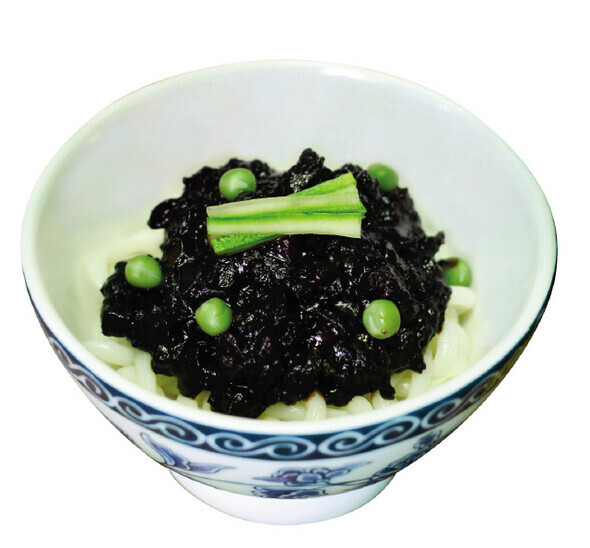hankyoreh
Links to other country sites 다른 나라 사이트 링크
[Column] To strengthen the S. Korea-US alliance, eat plenty of hamburgers and avoid Chinese takeout!

Questioning the details of Seoul’s alliance with Washington does not equate to dismantling it
On June 16, 2017, barely a month after Moon Jae-in’s inauguration as South Korean President, comments about the future of North Korea-US relations by Moon Chung-in, the president’s special advisor on unification, foreign affairs, and national security, during a seminar in Washington proved quite controversial in South Korea.
Moon suggested that, if North Korea halted its nuclear weapon and missile development, South Korea and the US could discuss the possibility of scaling back their joint military exercises and the deployment of US strategic assets to the Korean Peninsula. During a press conference after the seminar, Moon brought up the dispute over deploying the THAAD missile defense system to Korea and said, “If the South Korea-US alliance breaks down because of THAAD, it’s not much of an alliance.”
That triggered days of attacks by South Korea’s conservative press and pundits, who said that the remarks betrayed the Moon administration’s disdain for the South Korea-US alliance and its North Korean sympathies. They argued that downsizing the joint exercises and strategic assets on the Korean Peninsula was unthinkable and warned that the Moon administration might end its alliance with the US over THAAD.
That supposedly unimaginable downsizing of the joint exercises and strategic assets became a reality after the North Korea-US summit and is now regarded as the normal state of affairs in North Korea-US relations.
What’s happened to South Korea’s alliance with the US since then? As far as those pundits are concerned, the alliance appears to have been greatly harmed by the Moon administration’s lack of concern.
They cite remarks made by Lee Soo-hyuck, South Korean ambassador to the US, during a recent parliamentary audit. “Just because South Korea chose the US 70 years ago doesn’t mean it must choose the US for the next 70 years. Moving forward, we can only choose the US if that’s in our national interest,” Lee said.
The same newspapers and pundits who treated Moon Chung-in’s remarks as being basically a confession of Communist sympathies regarded Lee’s remarks as confirming their worries. The South Korea-US alliance has been weakened and the South Korean national interest greatly damaged, they argued.
There have also been a few incidents that back up their narrative. Back in August, two months before Lee’s remarks, Democratic Party lawmaker Kim Byeong-ju said “Let’s go together” while making a toast during a dinner with the Chinese ambassador to South Korea.
Several newspapers criticized what they saw as an “inappropriate comment” for a lawmaker in the ruling party to make and claimed that the comment was belatedly “stirring up controversy.” The papers noted that “Let’s go together” is a phrase symbolizing the South Korea-US alliance, a phrase that former US President Barack Obama and other American figures have said in the original Korean (“gachi gapshida”). They bemoaned the fact that such a phrase could be used on behalf of relations with China, which was a hostile nation in the Korean War and is currently locked in a hegemonic struggle with the US.
The Blue House appears to have gone one step further. One newspaper expressed concern that the Blue House had set up a promotional account on TikTok, the app so frequently denounced by US President Donald Trump. The newspaper expected that there would be controversy about the timing of the Blue House opening its account on TikTok, whose activities in the US had been sanctioned by the Trump administration.
Self-fulfilling prophecies and exaggerationsThe end of the article mentioned Moon Chung-in’s recent remarks in the US that, if South Korea allows the deployment of another THAAD battery or joins the US in military exercises in the South China Sea, China will regard South Korea as an enemy.
The paper described Moon Chung-in’s remarks as a “self-fulfilling prophecy.” If Koreans believe that will occur, the paper said, the actions they take under that belief will end up making it a reality. In short, belief affects behavior, which in turn creates reality. According to conservative pundits, Moon and Lee’s remarks, Kim’s toast about “Let’s go together,” and the Blue House’s TikTok account are all helping to realize this self-fulfilling prophecy.
Being realistic doesn’t mean giving in to all of the US’ demandsNicholas Spykman, regarded as the father of American geopolitics, once offered an honest appraisal of the harsh relationship of powerful and weak states. The ultimate fate of the small buffer states between the great powers, he said, is perilous at the best of times. Squaring up to that reality, it’s probably not wise to insist on South Korea’s national pride in its relationship with the US or to demand that Seoul stand up to Washington.
But does a realist approach to geopolitics really demand that we get flustered about the potential harm of routine remarks about South Korea’s relationship with the US and to beg the US to provide assurances about our concerns?
What does this reality mean for government officials who are charged with carving out a space for South Korea inside our alliance with the US, which is so important for us? Doesn’t that suggest we should just go along with whatever the US wants? If the South Korea-US alliance can be undermined and weakened by a TikTok account and a toast over dinner, is there anything we can do?
The US presidential election on Nov. 3 is an important time that will bring big changes to the American government. I guess what ordinary Koreans ought to be doing is committing themselves heart and soul to strengthening the alliance by eating plenty of hamburgers and avoiding Chinese takeout.

By Jung E-gil, senior staff writer
Please direct comments or questions to [english@hani.co.kr]

Editorial・opinion
![[Column] Welcome to the president’s pity party [Column] Welcome to the president’s pity party](https://flexible.img.hani.co.kr/flexible/normal/500/300/imgdb/original/2024/0515/3917157400447943.jpg) [Column] Welcome to the president’s pity party
[Column] Welcome to the president’s pity party![[Editorial] Korea must respond firmly to Japan’s attempt to usurp Line [Editorial] Korea must respond firmly to Japan’s attempt to usurp Line](https://flexible.img.hani.co.kr/flexible/normal/500/300/imgdb/original/2024/0514/2317156736305813.jpg) [Editorial] Korea must respond firmly to Japan’s attempt to usurp Line
[Editorial] Korea must respond firmly to Japan’s attempt to usurp Line- [Editorial] Transfers of prosecutors investigating Korea’s first lady send chilling message
- [Column] Will Seoul’s ties with Moscow really recover on their own?
- [Column] Samsung’s ‘lost decade’ and Lee Jae-yong’s mismatched chopsticks
- [Correspondent’s column] The real reason the US is worried about Chinese ‘overcapacity’
- [Editorial] Yoon’s gesture at communication only highlights his reluctance to change
- [Editorial] Perilous stakes of Trump’s rhetoric around US troop pullout from Korea
- [Guest essay] Preventing Korean Peninsula from becoming front line of new cold war
- [Column] The state is back — but is it in business?
Most viewed articles
- 1[Column] Welcome to the president’s pity party
- 2Could Korea’s Naver lose control of Line to Japan?
- 3Korean opposition decries Line affair as price of Yoon’s ‘degrading’ diplomacy toward Japan
- 4[Editorial] Korea must respond firmly to Japan’s attempt to usurp Line
- 5[Correspondent’s column] The real reason the US is worried about Chinese ‘overcapacity’
- 6[Column] Will Seoul’s ties with Moscow really recover on their own?
- 7US has always pulled troops from Korea unilaterally — is Yoon prepared for it to happen again?
- 8Naver’s union calls for action from government over possible Japanese buyout of Line
- 9[Editorial] Transfers of prosecutors investigating Korea’s first lady send chilling message
- 10Major personnel shuffle reassigns prosecutors leading investigations into Korea’s first lady